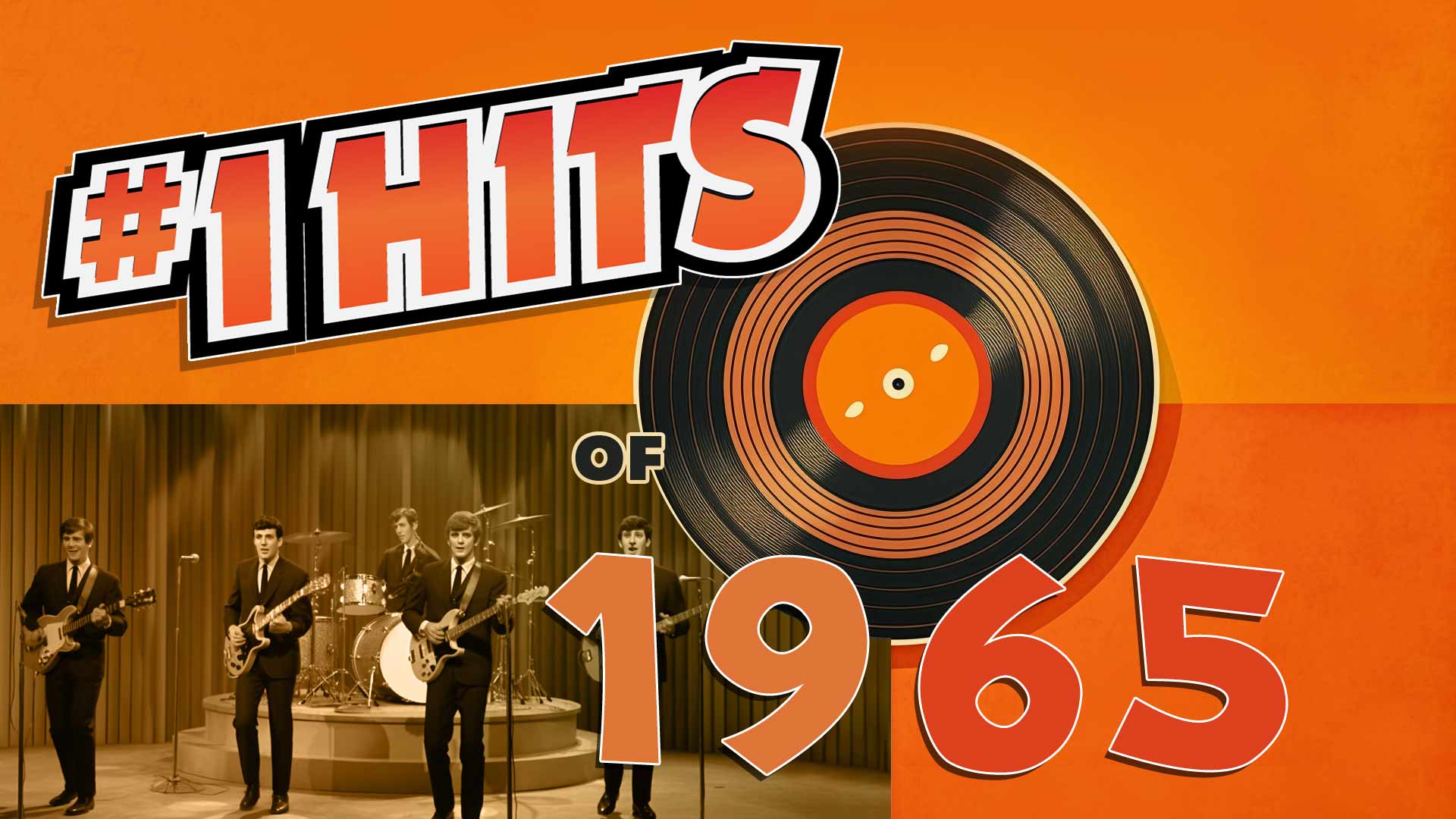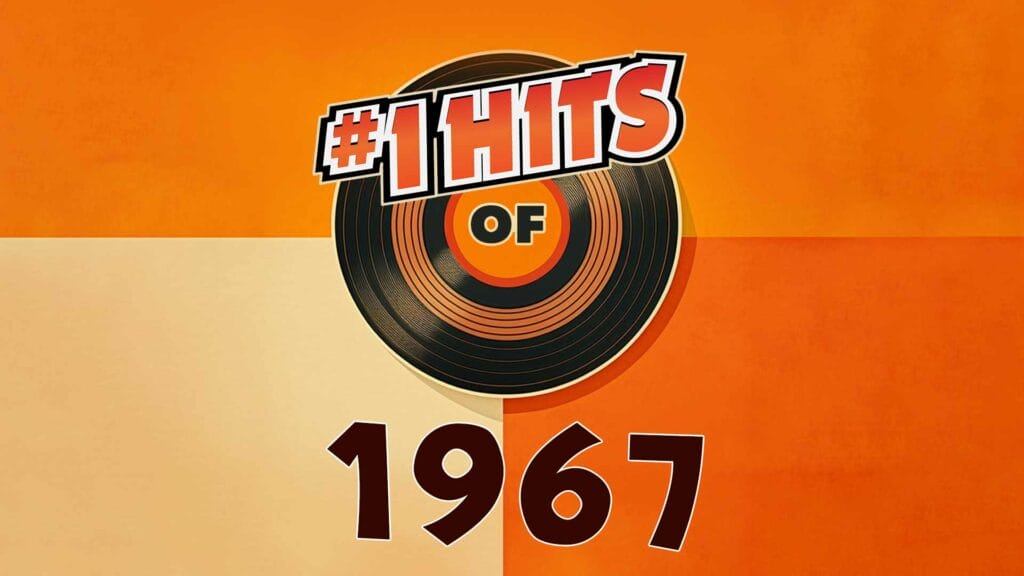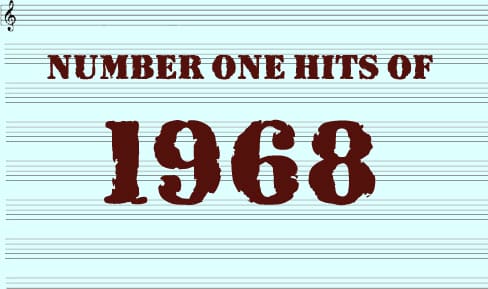|
|
||||
|---|---|---|---|---|
The Number One Hits Of 1965 |
||||
| December 26, 1964 – January 22, 1965 The Beatles I Feel Fine The Beatles were formed in Liverpool and consisted of John Lennon, Paul McCartney, George Harrison, and Ringo Starr. I Feel Fine was an early example of using feedback as a creative element in recording, featuring a prominent guitar riff. |
||||
| January 23, 1965 – February 5, 1965 Petula Clark Downtown Petula Clark is a British singer, actress, and composer who succeeded internationally in the 1960s. Tony Hatch wrote Downtown, and its catchy melody and uplifting message contributed to its popularity. |
||||
| February 6, 1965 – February 19, 1965 Righteous Brothers You’ve Lost That Lovin’ Feelin’ The Righteous Brothers were a duo consisting of Bill Medley and Bobby Hatfield, known for their powerful and emotional vocal performances. You’ve Lost That Lovin’ Feelin’, written by Phil Spector, Barry Mann, and Cynthia Weil, has been widely regarded as one of the best pop songs of all time. |
||||
| February 20, 1965 – March 5, 1965 Gary Lewis & The Playboys This Diamond Ring Gary Lewis & The Playboys was a 1960s pop and rock group led by Gary Lewis, the son of comedian Jerry Lewis. This Diamond Ring, written by Al Kooper, Bob Brass, and Irwin Levine, became the band’s first number-one hit. |
||||
| March 6, 1965 – March 12, 1965 The Temptations My Girl The Temptations were a highly influential vocal group formed in Detroit and known for their distinctive harmonies and choreography. My Girl, written and produced by Smokey Robinson and Ronald White, is one of the group’s most enduring and beloved hits. |
||||
| March 13, 1965 – March 26, 1965 The Beatles Eight Days a Week The Beatles were renowned for their innovative songwriting and recording techniques, which have impacted popular music. Eight Days a Week, primarily written by Paul McCartney, featured an unusual fade-in intro, which was uncommon for pop songs at the time. |
||||
| March 27, 1965 – April 9, 1965 The Supremes Stop! In the Name of Love The Supremes, led by Diana Ross, broke several records, including having 12 number-one singles on the US charts. Stop! In the Name of Love is another hit penned by the prolific songwriting team Holland-Dozier-Holland and features a memorable choreography with the group’s signature hand movements. |
||||
| April 10, 1965 – April 23, 1965 Freddie and the Dreamers I’m Telling You Now Freddie and the Dreamers were a British band from Manchester led by Freddie Garrity. Freddie Garrity and Mitch Murray wrote I’m Telling You Now, which became the group’s most successful hit in the US. |
||||
| April 24, 1965 – April 30, 1965 Wayne Fontana & The Mindbenders Game of Love Wayne Fontana & The Mindbenders was a British beat group with Wayne Fontana as their lead singer. Clint Ballard Jr. wrote Game of Love which became the group’s biggest hit in the US. |
||||
| May 1, 1965 – May 21, 1965 Herman’s Hermits Mrs. Brown, You’ve Got a Lovely Daughter Herman’s Hermits were an English beat rock band formed in Manchester, led by Peter Noone as their lead singer. Mrs. Brown, You’ve Got a Lovely Daughter was written by Trevor Peacock and is known for its distinctive rhythm played on an acoustic guitar. |
||||
| May 22, 1965 – May 28, 1965 The Beatles Ticket to Ride The Beatles continued to evolve their sound throughout the 1960s, exploring various musical styles and instrumentation. John Lennon primarily wrote Ticket to Ride, and its innovative drum pattern by Ringo Starr has been widely praised. |
||||
| May 29, 1965 – June 11, 1965 The Beach Boys Help Me Rhonda The Beach Boys were an American rock band from California, known for their distinctive vocal harmonies and innovative production techniques. Help Me Rhonda, written by Brian Wilson and Mike Love, is characterized by its catchy chorus and surf-rock instrumentation. |
||||
| June 12, 1965 – June 18, 1965 The Supremes Back In My Arms Again The Supremes were key figures in developing the Motown sound, which combined soul, pop, and R&B elements. Back In My Arms Again, written by Holland-Dozier-Holland, features energetic vocals and a driving rhythm that contributed to its success. |
||||
| June 19, 1965 – June 25, 1965 Four Tops I Can’t Help Myself (Sugar Pie, Honey Bunch) The Four Tops were an American vocal quartet from Detroit known for their powerful voices and smooth harmonies. I Can’t Help Myself (Sugar Pie, Honey Bunch), penned by Holland-Dozier-Holland, has become one of the most recognizable hits of the Motown era. |
||||
| June 26, 1965 – July 9, 1965 The Byrds Mr. Tambourine Man The Byrds were an American rock band that combined folk, rock, and pop music elements and were known for their jangly guitar sound. The band’s debut single, Mr. Tambourine Man, written by Bob Dylan, helped establish the folk-rock genre. |
||||
| July 10, 1965 – August 6, 1965 The Rolling Stones (I Can’t Get No) Satisfaction The Rolling Stones, led by Mick Jagger and Keith Richards, have influenced rock music for over five decades. (I Can’t Get No) Satisfaction features one of the most iconic guitar riffs in rock history, played by Keith Richards. |
||||
| August 7, 1965 – August 13, 1965 Herman’s Hermits I’m Henry VIII, I Am Herman’s Hermits gained popularity during the British Invasion with a series of catchy pop hits. I’m Henry VIII, I Am, written by Fred Murray and R. P. Weston, is a novelty song with a catchy chorus and humorous lyrics. |
||||
| August 14, 1965 – September 3, 1965 Sonny & Cher I Got You Babe Sonny & Cher was an American pop duo consisting of Salvatore “Sonny” Bono and Cherilyn “Cher” Sarkisian, who became famous in the 1960s. I Got Sonny Bono wrote You Babe and has become one of the most iconic duets in popular music history. |
||||
| September 4, 1965 – September 24, 1965 The Beatles Help! The Beatles were known for their immense cultural impact and the diversity of their musical output. Help! was the title track of their fifth studio album and film and featured harmony vocals and an upbeat tempo. |
||||
| September 25, 1965 – October 1, 1965 Barry McGuire Eve Of Destruction Barry McGuire is an American singer-songwriter who began his career as a member of the folk group The New Christy Minstrels. Eve Of Destruction, written by P. F. Sloan, is a protest song that addresses various social and political issues of the time. |
||||
| October 2, 1965 – October 8, 1965 The McCoys Hang On Sloopy The McCoys were an American rock band known for their hit single Hang On Sloopy. Hang On Sloopy, written by Wes Farrell and Bert Berns, features a catchy melody and has become a popular garage rock classic. |
||||
| October 9, 1965 – November 5, 1965 The Beatles Yesterday The Beatles pioneered orchestral arrangements and unconventional instruments in pop music. Yesterday, written by Paul McCartney, features a solo vocal and acoustic guitar performance, with a string quartet providing the backing. |
||||
| November 6, 1965 – November 19, 1965 The Rolling Stones Get Off of My Cloud The Rolling Stones have released over 30 studio albums and are considered one of history’s most enduring and influential rock bands. Get Off of My Cloud, written by Mick Jagger and Keith Richards, showcases the band’s bluesy rock sound and rebellious attitude. |
||||
| November 20, 1965 – December 3, 1965 The Supremes I Hear A Symphony The Supremes’ polished performances and stylish image made them one of the most successful girl groups of all time. I Hear A Symphony, written by Holland-Dozier-Holland, is known for its lush orchestration and complex vocal arrangements. |
||||
| December 4, 1965 – December 24, 1965 The Byrds Turn! Turn! Turn! The Byrds’ fusion of folk and rock music helped to popularize the folk-rock genre in the mid-1960s. Turn! Turn! Turn!, written by Pete Seeger, features lyrics adapted from the Book of Ecclesiastes in the Bible, with a message of peace and understanding. |
||||
| December 25, 1965 – December 31, 1966 The Dave Clark Five Over and Over The Dave Clark Five was an English rock band that emerged during the British Invasion, led by drummer and manager Dave Clark. Over and Over, written by Bobby Day, was originally recorded by The Valentinos in 1958, but The Dave Clark Five’s version became a major hit in the US. |
||||
|
The Biggest Pop Artists of 1965 include: (HPS music data is compiled from charts, including Billboard’s Pop, Rock, Airplay, R&B/Dance, and Singles Charts. The Hot 100 is the primary chart used for this list.) |



